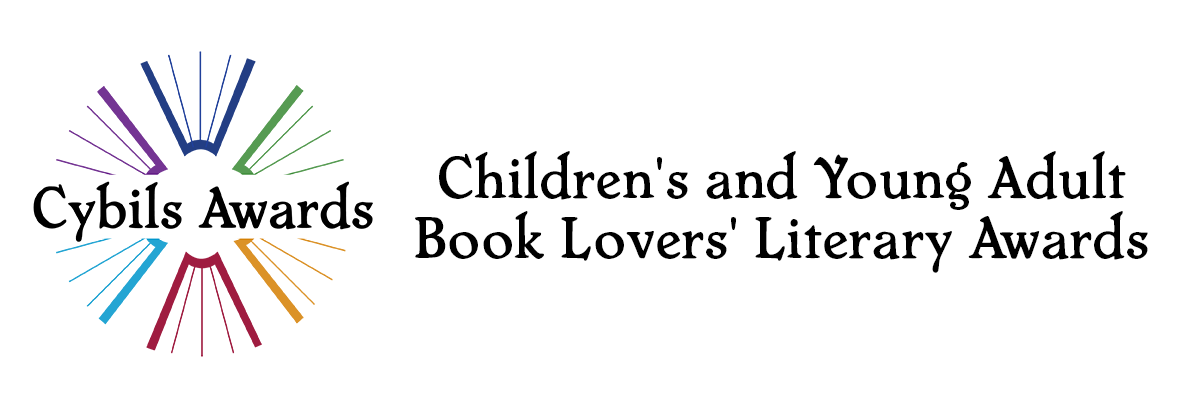That's right, we're back with another revealing roundtable with our 2008 Cybils nominating panelists–this time we find out what makes the YA Fiction panelists tick. Since they've got a lot to tell you, we're dividing it up into two posts: one today and one on Tuesday. (Tune in to the blog tomorrow for another book review.) Props to YA Fiction category organizer Jackie Parker (Interactive Reader) for putting together such a great roundtable!
What do you look for in a good teen book?
Becky Laney (Becky's Book Reviews): What I look for in a good teen book is the same thing I look for in any good book. Well-developed characters that ring true to life and human nature. Flawed souls that the reader can relate to…either to love or hate. Pacing is important as well. There has to be something compelling about the book…whether it is characters, plot, or literary style…something that keeps the reader hooked and wanting more, more, more.
Trisha Murakami (The YA YA YAs): I like to see a strong voice. It's not the only thing I look for, of course, but it's often the first thing that catches my attention. Especially if the conflict doesn't begin right away, a strong voice can keep readers hooked until things do get going.
Amanda Snow (A Patchwork of Books): I definitely look for characters that are realistic, rather than contrived and artificial. If it feels like the author speaking, rather than a 16-year-old, I have issues with that. I also appreciate a book teens can not only relate to, but lose themselves in. If they can relate to the character or the topic, they will keep on reading.
Abby Johnson (Abby (the) Librarian): I'll echo the others and say that I definitely look for a character that grabs my attention and makes me care about him or her. I don't need to like the character, necessarily, but I do need to care about what they're doing and where they're going. I also look for a well-developed sense of place, time and world, a setting that envelops the reader and makes me feel as if I'm right there with the characters.
Jocelyn Pearce (Teen Book Review): Aside from what makes any book good (well-written, believable characters, etc.), I appreciate authors who appreciate their audience and don't talk down to them. It's also nice to recognize that the author remembers what it's actually like to be a teenager.
Kate Fall (Author2Author): I like a unique setting, something different than my day-to-day experiences. It doesn't have to be an exotic country. The setting can still be inside a high school, for example. But then I'd like to see that world in a new way and experience what it's like from a unique perspective.
Leila Roy (Bookshelves of Doom): For me, the most important thing is that I believe in the characters. Caring about them is nice, liking them is nice, but neither of those things is necessary–look at Chris Lynch's Inexcusable. In that one, I didn't come close to liking Keir, but I believed in him. My favorite books always feature protagonists who cease to be characters in my mind–they become people.
What do you think makes a for a BAD teen book?
Leila: The opposite of what I just said. If I don't believe in the characters, the author has lost me. Actually, this goes for books in general for me, regardless of genre. That said, I also hate it when there's tons of expository dialogue–a lot of telling rather than showing can ruin an otherwise good story.
Becky: This varies, of course. But flat characters that are truly lifeless and boring can kill my interest in a book very quickly. Also, another pet peeve of mine is books that are didactic and message-y. Books that try to hit you over the head with a hammer getting their message across–whether you happen to agree with their view or not–to me it's just a sign of bad writing. Sermons-disguised-as-dialogue…not working for me!
Jocelyn: Aside from the things that make any book bad, I agree with Becky. I hate it when authors seem to think that teenagers need to be taught lessons when they read. I don't want to be beaten over the head with a message! This extends also to people who think that just because a teen reads a book in which characters have sex or do drugs or participate in some other kind of less-than-wholesome behavior, he or she will believe that is acceptable and immediately go out and participate in it. And books where it feels like the author is talking down to readers. Being young does not mean being stupid.
Amanda: If the subject matter is something that has been written on a thousand times before and there is nothing unique about it, that's bad in my book. Again, if the characters sound fake or have words coming out of their mouths that don't sound like something they would say.
Abby: A pet peeve of mine is books being set in a historical time period for no apparent reason, especially when it's possible that the author may have been a teenager in that time period. It makes me think that the author is either really nostalgic (write a memoir…), lazy, or out of touch with kids today.
Kate: When the character isn't aged appropriately. I don't know what irks me more, 14-year-olds with unlimited finances who can go anywhere whenever they like, or 18-year-olds who whine and pout about their parents like tweens. I expect 17- and 18-year-old characters to be able to survive on their own if need be, and I expect young teens to struggle with limits. Otherwise, I feel like the editor asked for a last-minute age change.
Take heed, writers! There's some excellent advice in here from YA Fiction-reading mavens. Tune in again on Tuesday for the rest of the YA Fiction panel roundtable.
–Sarah Stevenson, Deputy Editor
